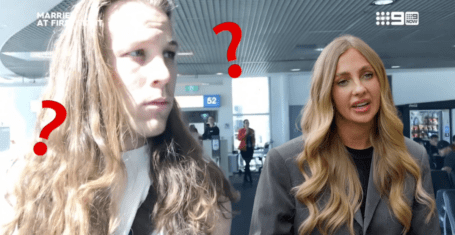
Hard-of-hearing UoM student demands better quality of teaching during Covid
She spoke to The Manchester Tab about the difficulties she has faced
Maddie Webster is a differently-abled 20-year-old who has just started her third year in Integrated Masters in Biology at the University of Manchester. The Manchester Tab has spoken to Maddie about some of the serious underlying issues that differently-abled students face whilst at university.
Maddie was officially diagnosed as severely to moderately deaf when she was around six and she has been managing her hearing aids and disability ever since. She has explained how she has received “support throughout her education where needed”, for example, having her own room in exams, or receiving information directly from a helper who was separate from the teacher.
When Maddie joined UoM she had registered with DASS (Disability Advisory and Support Services). She said, “I felt that the quality of learning I have received was much lower than I expected considering I have been registered with DASS for nearly two years”.
When we asked her what she would like to see the university to improve, she answered: “That’s a complicated question, every student’s disability is different and will require different adjustments and support”. However personally, Maddie would like to see an improvement in the subtitle function on the online lectures – as found that words were being misspelled.

Example of misspelling in transcript
Subjects like the pure sciences usually have heavy jargon and the spelling of keywords does not equate to how it sounds, especially for people with listening disabilities. Students expect those spellings to be correct so that their lectures are comprehensive. Differently-abled students also expect a better quality of sound. However multiple UoM students have reported that lecturers are often muffled by crackling and occasionally the speaker cuts out altogether.
It is not only online where problems have arisen for students like Maddie. In face-to-face tutorials, advisors or professors have to wear a mask and subsequently, for students who rely on lip-reading, the tutorial becomes impossible. There are adapted masks that have been created to accommodate this and such masks are not expensive either. Maddie has said, she “finds it hard to believe that a world-renowned university like UoM isn’t providing these masks for tutors with hard-of-hearing students”.
Maddie feels that there has not been enough thought put into the challenges disabled students face during online learning and that students are being let down by the university. Maddie hopes that other disabled students to know that they have the right to demand better.

Students are paying the same fees, and their education has already been reduced to being online, Maddie thinks that “some of that money should go towards supporting these students, and we as students have the right to demand better conditions”. Maddie has expressed hope that able-bodied students will be understanding and support their friends who might be struggling.
When asked for comment, the University of Manchester informed the Tab Manchester that: “As a University, we are fully committed to providing support for all our disabled students. Our Disability Advisory and Support Service (DASS) ensures they receive tailored assistance for their individual requirements.”
The spokesperson added that DASS has provided support workers, software, and other technological solutions where students’ needs have changed as a result of the move to online teaching. He has encouraged students to contact DASS directly if they need alternative support.
The spokesperson went on to say that: “Throughout the pandemic, DASS and our other university support services have continued to provide appointments and services by video, phone, and email. The feedback we have received shows a positive experience for many of our disabled students.”
When asked about the university’s official policy, the official stated: “All our centrally timetabled lectures are recorded so that students can access this teaching when unable to attend campus.
“During the COVID-19 pandemic, the University has improved this offer, and all videos which are uploaded to the University’s video portal include subtitling and downloadable transcripts which can be used by all students. There is clear guidance for academic staff on how to provide accessible teaching materials for disabled students.”
However, he noted: “we do recognise that different students have different needs, and we know there are always areas we can improve and that is something the University is consistently working towards”.
Related stories recommended by this writer:
•University of Manchester now has over 1,000 cases of coronavirus on campus
•Student mental health is being neglected, right when we need help the most
•‘Cruel’ and ‘pathetic’: Manc students on a potential Christmas student lockdown








































